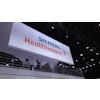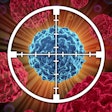Women diagnosed with early-stage HER2-positive breast cancer can breathe a sigh of relief: Concurrent treatment with radiation therapy (RT) and adjuvant trastuzumab following chemotherapy with doxorubicin and cyclophosphamide does not increase the risk of adverse cardiac events.
This is good news, because the results of two recent clinical trials (the North Central Cancer Treatment Group [NCCTG] N9831 trial and the National Surgical Adjuvant Breast and Bowel Project B-31 trial) demonstrated significant survival benefits when trastuzumab was added to systemic therapy. However, cardiac toxicity was detected among the patient cohort receiving trastuzumab in the NCCTG N9831 trial. Researchers also were concerned that concurrent radiation therapy treatment could also create radiosensitization toxicity.
But a new analysis of NCCTG N9831 trial data points to the safety of trastuzumab when used in conjunction with radiation therapy. The new study was performed by principal investigator Dr. Michele Halyard, vice chairman of research at the Mayo Clinic's department of radiation oncology in Scottsdale, AZ, and colleagues, and results were published online in the Journal of Clinical Oncology for April 9, 2009.
The NCCTG N9831 clinical trial involved 2,148 women with early-stage resected HER2 breast adenocarcinoma. Seventy percent of the enrolled patients, or 1,503 women, received adjuvant radiation therapy after having either a lumpectomy or a mastectomy.
Patients received a median radiation dose of 50 Gy (range, 22.5-60.4 Gy) during their whole-breast radiation treatment, and 72% also received a boost dose. Four hundred ninety-nine patients received axillary nodal irradiation, and 1,126 patients received supraclavicular radiation.
Cardiac toxicity was assessed in 1,418 of these patients. There was no increase in cardiac events, regardless of age, hormone receptor status, or antihypertensive use, based on following patients for a median of 3.7 years. The only significant side effect was leukopenia, a decrease in the number of white blood cells.
The researchers recommend that late-effect adverse events associated with radiation therapy be conducted in a long-term outcomes study.
Related Reading
Small HER2-positive breast tumors linked to poor prognosis, December 15, 2008
Trastuzumab cost-effective for early HER2-positive breast cancer, March 9, 2007
Trastuzumab during pregnancy linked to lack of amniotic fluid, March 14, 2005
CNS metastases common among breast cancer patients given trastuzumab, June 16, 2003
Copyright © 2009 AuntMinnie.com



















